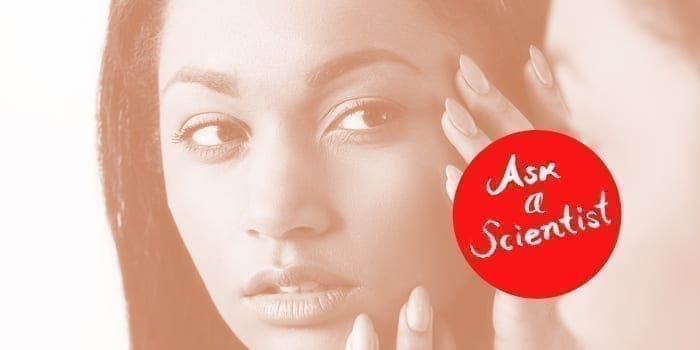The Scientist: Dr. Annie Chiu, Board-Certified Dermatologist with a private practice in Redondo Beach, CA, member of the American Academy of Dermatology and Women’s Dermatologic Society,who formerly practiced at Cedars-Sinai Medical Center.
The Answer: It’s a misconception to consider acne a “teenage thing.” Adult acne is exceedingly common, but it really depends on the individual. We don’t necessarily “outgrow” acne, but the type of acne does change for most people over time. Teenage acne is typically driven by increases in testosterone. Adult acne can be a result of pore clogging from slower skin turnover that occurs with time, sweating, excess oil production, as well as different hormonal changes.
Women’s estrogen levels start dropping as early as our 30’s – which then leads to hormonal acne in women, because testosterone now predominates in the body. A U-distribution of facial acne along the chin, jawline and lower face usually signifies hormonal acne, although there are variations.
Ask a Scientist: Is Wearing Makeup At the Gym Bad for Your Skin?
The good news is that as we age, our oil glands stand down and produce less sebum and oil, leaving us with less chance of deeply scarring, cystic acne. Adult acne is more likely to occur along with dry patches or sensitive skin, which requires a gentle treatment that doesn’t over-dry.
If you do suffer from acne, it’s important to remember that preventing a breakout is always better than trying to stop one in its tracks. Since adult skin is less oily, over-the-counter treatments often dry out the skin and can lead to more irritation and worsen breakouts. I usually prescribe Aczone, a topical anti-inflammatory, for breakouts, and the retinoid Tazorac, for long-term care. Your dermatologist will know what’s best for you. It’s also important to avoid stress, which studies show is a trigger for acne breakouts at any age.




































